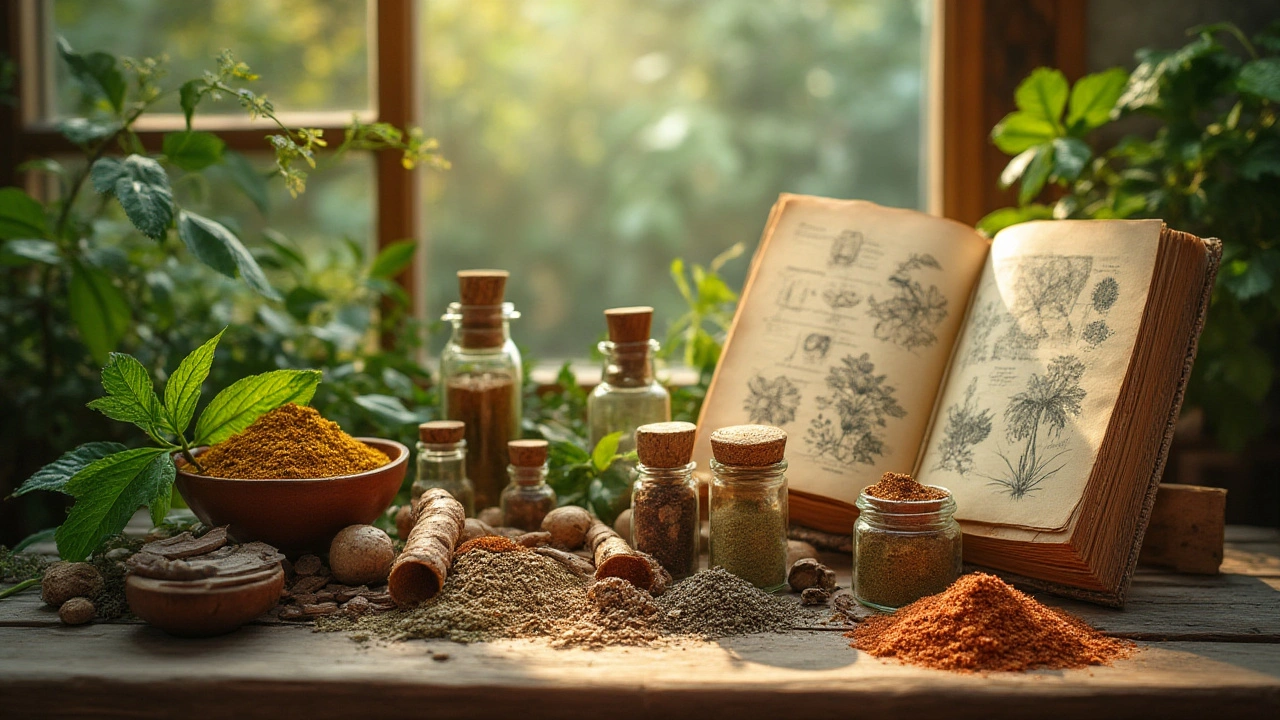Herbal Remedy Guide: Simple Ways to Use Natural Herbs Safely
If you’ve ever wondered whether that tea you brewed from a backyard plant really works, you’re not alone. People turn to herbal remedies for everything from digestion to immune support because they want a natural option that feels safe and affordable. The good news? Many herbs have solid research behind them, and with a few smart steps you can enjoy their benefits without guessing.
What Makes an Herbal Remedy Worth Trying?
First, look for herbs that have been studied in human trials or at least have a long history of traditional use. Bogbean (Menyanthes trifoliata) is a good example – modern studies show it can help with mild digestive complaints, and it’s been used in folk medicine for centuries. Black walnut is another plant with a reputation for supporting gut health and providing antioxidants, and recent labs confirm it has strong anti‑inflammatory compounds.
Second, consider the form you’ll use. Whole dried herbs, tinctures, and standardized extracts each have pros and cons. Whole herbs are the least processed but can vary in potency. Extracts give you a consistent dose, which is important when you’re tracking results. Tinctures are handy for quick dosing and are absorbed faster than a tea.
How to Choose Quality Herbs and Avoid Pitfalls
Quality matters as much as the herb itself. Choose brands that provide a Certificate of Analysis (COA) or third‑party testing results. This shows the product is free from contaminants like heavy metals or unwanted fillers. Reading the label for the exact part of the plant used (leaf, bark, seed) helps you match the preparation to the benefit you’re after.
Watch for interactions. Even natural herbs can affect prescription meds. Bogbean, for instance, can amplify the effect of blood‑thinning drugs, while black walnut may interfere with certain cholesterol‑lowering medicines. Always jot down what you’re taking and chat with a pharmacist or your doctor before adding a new herb.
Start low and go slow. A common mistake is jumping to the maximum dose listed on a bottle. Begin with half the suggested amount, give your body a week, then adjust if you feel comfortable. This approach lets you spot any side effects early – like mild stomach upset or a headache – without overloading your system.
Store herbs properly. Keep them in a cool, dry place away from direct sunlight. Airtight containers preserve potency for longer, especially for powders and dried leaves.
Finally, keep a simple journal. Note the herb, dose, time of day, and how you feel. Over a few weeks you’ll see patterns that tell you whether the remedy is helping, needs a tweak, or isn’t worth the effort.
Herbal remedies can be a practical, affordable addition to your health toolkit when you pick the right ones, use them responsibly, and stay aware of how they fit with any other meds you take. Ready to try a new herb? Start with a small, well‑tested option like bogbean or black walnut, follow the safety tips above, and see how nature’s pharmacy works for you.

Abana: Benefits, Uses, and the Science Behind This Traditional Remedy
Unlock the secrets of Abana, a herbal remedy used for heart health, its origin, science, and ways to use it safely and effectively.
Read More